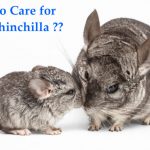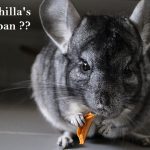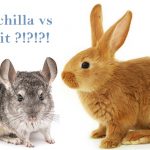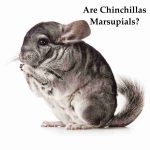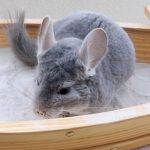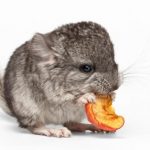Chinchilla
What do Chinchillas Eat? #Strawberries #Oranges #Carrots #Grapes #Bananas
If you really love your Chinchillas, it is extremely important to ensure that you feed them what they actually are looking ahead to. Of course, Chinchillas are herbivorous, and they would need a lot of grass and plants.
In case you are purchasing a chinchilla, or you have already purchased one, you should learn how to feed them and what to offer them. So, here are a few excellent options that you would need to focus on and learn how to feed your chinchillas.
Before you learn that, it is essential to understand what fruits and vegetables can Chinchillas eat.
Contents
- 1 What Does Chinchilla Eat?
- 2 What Fruits and Vegetables can Chinchillas Eat?
- 3 What Should be the Best Basic Diet for Chinchillas?
- 4 What do Chinchillas Eat in The Wild?
- 5 Can Chinchillas Eat Rabbit Food?
- 6 What Human Food Can Chinchillas Eat?
- 7 What Food Should You Avoid?
- 8 A Few Questions – The Diet habits of Chinchillas
- 8.1 Can Chinchillas Eat Carrots?
- 8.2 Can Chinchillas Eat Strawberries?
- 8.3 Can Chinchillas Eat Grapes?
- 8.4 Can Chinchillas Eat Bananas?
- 8.5 Can Chinchillas Eat Raisins?
- 8.6 Can Chinchillas Eat Peanuts?
- 8.7 Can Chinchillas Eat Lettuce?
- 8.8 Can Chinchillas Eat Blueberries?
- 8.9 Can Chinchillas Eat Oranges?
- 8.10 Can Chinchillas Eat Cheerios?
- 8.11 Can Chinchillas Eat Watermelon?
- 8.12 Can Chinchillas Eat Kale?
- 8.13 Can Chinchillas Eat Nuts?
- 8.14 Can Chinchillas Eat Cheese?
- 8.15 Can Chinchillas Eat Broccoli?
- 9 The Closing Remarks
What Does Chinchilla Eat?
Chinchillas are one of the cutest pets ever. Being herbivorous, they would need an extremely fiber-rich diet. They would also need a lot of low fat and moisture-filled diet. Make sure you feed your chinchillas with the food rich in some of the most essential elements.
According to the experts, you should ideally feed the food that is rich in 35% carbohydrates, 15% protein, 30% fiber, 4% sugar and extremely low fat. In fact, eating any food low in fiber content can make your chinchillas overgrow their teeth. This is likely to lead them to chew fur.
Chinchillas tend to eat a lot of plants, but too much lush in the vegetables may cause issues with their digestive system. Make sure that you have regulated it properly.

What Fruits and Vegetables can Chinchillas Eat?
If you are interested in knowing the fruits that chinchillas can eat, a few of the best options would include:
- Raisins
- Grapes
- Apples
- Blueberries
- Pears
- Apricots
- Dry fruits like almonds
While the fruits can have excellent fiber content, the best source for fiber is through the consumption of vegetables.
Some of the vegetable options that can be a good option for chinchillas can be:
- Squash
- Carrots
- Sweet Potatoes
- Kale
- Celery
- Alfalfa
- Lettuce (to some extent)
- Peas
- Cucumbers
What Should be the Best Basic Diet for Chinchillas?
Well, we have already mentioned that chinchillas are herbivorous. However, that should not mean that they can eat practically any plant produce. There are a few specific areas that you should b focussed on when making the right choice. You would need a piece of particular knowledge and enough understanding about the diet best suited for Chinchillas.
The perfectly balanced diet for chinchillas can include two primary elements – pellets and hay. While commercial chinchilla pellets are available across pet stores, opting for the natural food may be a good option. Do note that fruits and vegetables can be a good option in many cases, but we would recommend limiting the contents to just around percent of the total diet.
A few good options from that perspective can include carrots, kale, parsley, dandelion greens, lettuce, collard greens, and turnip greens. If you are looking for strawberries, peas, bananas, and apples. Ensure that you have chopped the fruits and vegetables into smaller parts. It should be noticed that the leftovers of any of the food left inside the cage. In case the chinchillas are unwell, never ever opt for fruits and other food items that are high in sugar.
Water is yet another essential element that forms part of the chinchilla diet. Keep enough water and ensure that it is fresh. Pure and filtered water without chlorine content would be what can be a great choice. It is also important to refresh the water content at frequent intervals.
What do Chinchillas Eat in The Wild?
The diet of the chinchillas in the wild is entirely different from what you would observe in the cage. Entirely herbivorous, they do feast on a wide range of food such as bark, foliage, seeds, cactus fruit, flowers, and grass.
However, that should not mean you should feed them the same food that they consume while in the wild. Doing so can get them ill. In the wild, the chinchillas tend to have a very active lifestyle. This is not the case while in captivity.
While they can be quite herbivorous in many cases, you would also find that they tend to eat a few small insects and bird eggs. In addition, the chinchillas in the wild do eat grasses, seeds, fruits, small plants, and plant leaves.
Here are a few items that chinchillas eat in the wild:
- Llagunoa glandulosa
- Nassella chilensis
- Stipa plumosa Trin
- Astephanus geminiflorus
- Puya berteroniana: Kraut, Blüte
- Glandularia sulphurea
- Apium laciniatum
- Moscharia pinnatifida
Please note that these are the scientific names of the plants that wild chinchillas eat. During the monsoons and similar colder climates, the chinchillas in the wild eat shrubs and bushes.
The chinchillas in the wild do not consume much water. Since the wild has plenty of succulent plants, you would find them eating these plants to meet their water requirements.
Can Chinchillas Eat Rabbit Food?
Well, that would be something that would need a thorough understanding of the food habits of both rabbits and chinchillas. That would mean you should never give rabbit food to the chinchillas.
A few of the experts suggest that offering high-quality rabbit food can be suitable enough for the chinchillas. However, how would you be able to ascertain the quality of the food? No rabbit food would be labeled to be safe for the chinchillas. Just make sure that you are feeding your chinchillas with the right quality of rabbit food. If you are in doubt, do ensure that you DO NOT feed rabbit food to your pet chinchillas.
What Human Food Can Chinchillas Eat?
Well, chinchillas do not eat human food. In fact, even if you make them eat such food, it may be a strictly bad idea. We would not recommend feeding your chinchillas with human food.
Of course, there may be a few food items that your Chinchilla may like to have, but you do not necessarily know whether it is good enough for the chinchillas as well. Just like with the rabbit food, we would definitely recommend you opt for the best possible advice from the experts, or choose not to feed human food at all.
What Food Should You Avoid?
Chinchillas do have a seriously delicate digestive system. You should NEVER feed the following food to your pet chinchillas:
- Sunflower seeds
- Nuts
- Peas
- Corn
- Broccoli
- Avocado
- Banana
- Certain leafy greens (cabbage, spinach, lettuce)
- Asparagus
Always keep the right amount of water and hay in the cage. Hay should be changed quite frequently as it can get moldy. If you are looking to improve the diet of your chinchillas, do not change it suddenly. Abrupt dietary changes can be a considerable risk, and your Chinchilla may not be able to adjust.
And yes, chinchillas do eat their own droppings. There is nothing wrong with it. They do it for absorbing the essential nutrients. If you find your Chinchilla doing it, do not discourage it. The food rich in fats and sugar, such as nuts and seeds, should be avoided.
A Few Questions – The Diet habits of Chinchillas
Let us check out a few dietary habits of chinchillas so that you would understand what your pet is looking ahead to.
Can Chinchillas Eat Carrots?
Yes, chinchillas can eat carrots. However, eating them in a substantial-quality may not be advisable. Too much of fruits and vegetables is likely to cause issues related to digestion. Your favorite pet may develop diarrhea and other stomach related issues.
A high content of moisture in carrots can cause a build-up of gas. This can make your Chinchilla uncomfortable. You should offer them as treats and NOT as constant food.
Can Chinchillas Eat Strawberries?
Of course, they would eat strawberries. Even then, you would not want to feed them the fruits. Strawberries can contain a lot of sugar.
While feeding strawberries can be a good idea in smaller quantities, it would not be recommended as you would not be sure whether your pet chinchilla be able to handle it effectively.
Can Chinchillas Eat Grapes?
Grapes are yet another fruit that we do not recommend feeding to your pet chinchillas. Grapes contain a lot of water.
It is not recommended for the chinchillas to consume any fruit that contains a lot of water. The high amount of acidic content and sugar can be dangerous for your chinchillas. It is much dangerous for the stomach and digestive system. Avoid feeding grapes to your chinchillas.
Can Chinchillas Eat Bananas?
Yet another strong NO. Bananas have a high degree of phosphorus content. Once again, these are highly acidic and also come with a high amount of sugar. That should provide you with an insight into what makes the banana a lousy option to feed your Chinchilla.
Bananas also come with fat and potassium content as well. Since fat is also something chinchillas can find a risky affair, we would recommend against feeding bananas to your pet. Even if you want to feed bananas, they can be done in highly low quantities.
Can Chinchillas Eat Raisins?
Yes. You can definitely feed raisins to chinchillas. However, do note that you should not offer chinchillas raisins in a higher quantity. The maximum quantity we would recommend would be to feed them not more than one to two raisins per day.
Also, it may be a better idea not to offer raisins to your chinchillas on a daily basis. Other regular food would be a good option than feeding raisins.
Can Chinchillas Eat Peanuts?
Nuts and seeds are quite not suitable for the chinchillas. The primary reason that would make these items not suitable is the high-fat content available in them.
From that perspective, peanuts should be a strict No for your pet chinchilla. It may also contain sugar levels to a higher degree and should ideally be avoided.
Can Chinchillas Eat Lettuce?
Yes, but to some extent. In fact, around 10 percent of the food for the Chinchilla should consist of greens. It may be an excellent option to feed a little amount of lettuce to your Chinchilla.
Ideally speaking, you should not feed lettuce to your pet chinchilla for more than twice a week. Lettuce consists of higher water content along with a little acidic ingredient. It can upset your Chinchilla’s stomach. It can also cause issues such as a bloated stomach due to gas.
Can Chinchillas Eat Blueberries?
They are berries, and it should go without saying that you should never opt for blueberries as a diet for your Chinchilla. They are not safe for your Chinchilla as they contain a huge amount of sugar.
The chinchillas would not be able to handle the extreme sugar content and can experience constipation or even other dietary complications. Never feed even a little amount of blueberries to your pet chinchillas.
Can Chinchillas Eat Oranges?
No. You should not feed oranges to the chinchillas. Oranges consist of a very high acidic content and thus should not be suitable for the pet chinchillas. The high content of sugar and phosphorus can be one of the huge difficulties.
The oranges can cause stomach indigestion and other issues. It can even cause serious concerns. Even orange peels may not be something we would not recommend. Avoid oranges and orange peels altogether.
Can Chinchillas Eat Cheerios?
Yes, your pet chinchillas can eat cheerios. However, do ensure that you feed only limited quantities of cheerios. Make sure you do not feed it quite often.
They are safe for your beloved Chinchilla, and they would indeed love the cheerios. However, experts believe that it may not be a healthy option to serve your chinchillas with.
Can Chinchillas Eat Watermelon?
No. Never ever feed watermelons to your chinchillas. The reason should rather be quite evident. Watermelon is a water-based fruit, and too much water can be something your Chinchilla would not be comfortable enough.
It also contains a huge amount of sugar, phosphorus and high acidity. If you do not want your Chinchilla to develop digestion-related issues, we would recommend against offering watermelon to your pet chinchillas.
Can Chinchillas Eat Kale?
Yes. It is one of the best food options you can feed your chinchillas with. Almost 10 percent of your food items should consist of greens. Kale can be one of the excellent options for occasional treats. In any case, d ensure that you do not make it consume more than 10 percent of the total diet.
Provide Kale to your not more than twice a week. However, we would advise you to chop them up before you can feed them. It does consist of a lot of calcium, phosphorus and acidic content.
Can Chinchillas Eat Nuts?
Well, we do not recommend feeding nuts to the pet chinchillas. They consist of a lot of fat, and it would not be the right diet for your pet. Any type of nut can be detrimental to the digestive system of the chinchillas.
It may also contain a considerably higher amount of sugar. This is yet another ingredient that your Chinchilla may be comfortable with.
Can Chinchillas Eat Cheese?
No. Chinchillas cannot eat cheese. In fact, not cheeses alone, your Chinchilla should not be fed with practically any kind of dairy food.
Ensure that you do not feed cheese or any form of airy product to your Chinchilla. Even if it attempts to eat it, make sure you do not allow it to do so.
Can Chinchillas Eat Broccoli?
Broccoli is full of acidic content. That would rule out the use of Broccoli as the best diet for Chinchilla. The Chinchilla cannot handle the acidic content, and as such, it is not recommended to feed your pet chinchillas with the broccoli or cabbage.
The Closing Remarks
Well, chinchillas can be one of the strange and unique pet animals and can be your best companions. However, understanding their diet habits can be a key to ensuring better care for the pet. We assume the tips offered here should ideally go a long way in helping you get access to the best possible access to an enhanced experience of pet keeping.

-
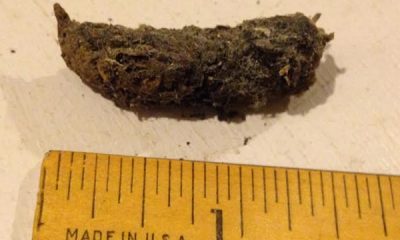
 Skunk4 years ago
Skunk4 years agoWhat Does Skunk Poop Look Like? Images & Identifications
-
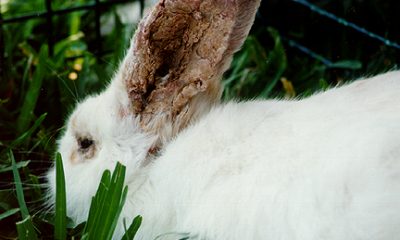
 Bunny5 years ago
Bunny5 years agoHow to Get Rid of Mites on Rabbits? #NaturalRemedies #Video
-
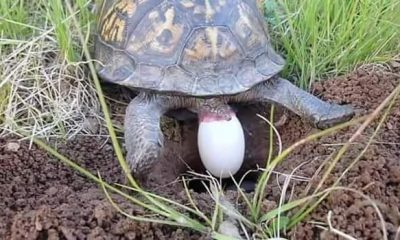
 Turtles5 years ago
Turtles5 years agoHow To Take Care of Turtle Egg At Home?
-
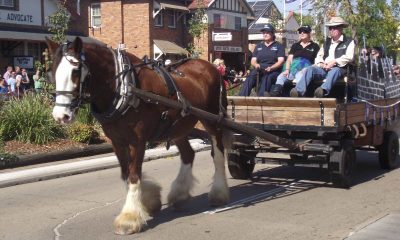
 Horse4 years ago
Horse4 years agoHow Much Weight Can a Horse Carry? #Clydesdale #Friesian #Mustang #Draft
-

 Turtles4 years ago
Turtles4 years agoHow to Take Care of Snapping Turtle Eggs? #Incubating #Hatching
-
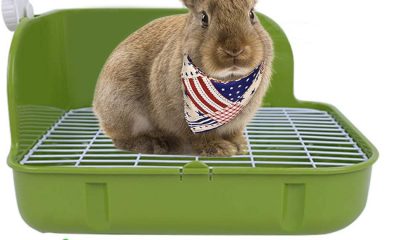
 Bunny4 years ago
Bunny4 years agoHow to Potty Train a Rabbit in House? Tips on Litter Training
-
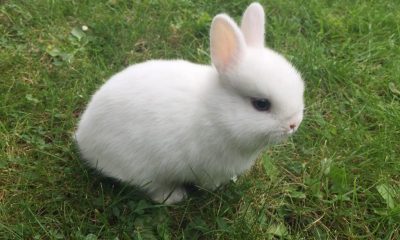
 Bunny5 years ago
Bunny5 years agoHow Big Do Dwarf Bunnies Get? – Amazing Facts #Images
-
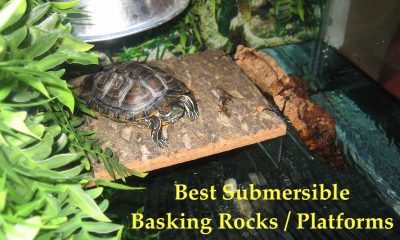
 Turtles4 years ago
Turtles4 years ago8 Basking Rocks/ Platforms for Turtles – A Perfect Guide

